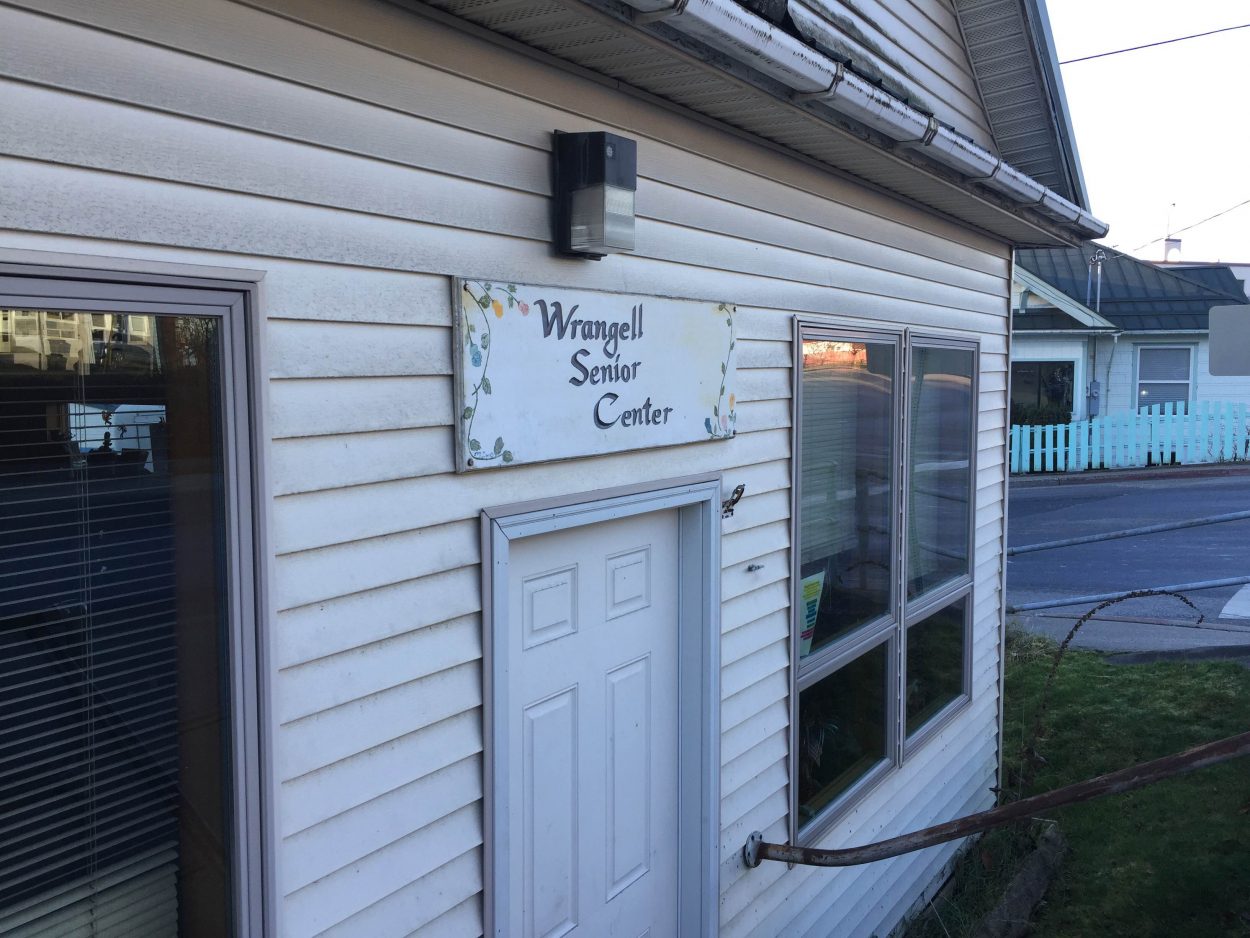Wrangell is home to the second oldest population in the state. It should come as no surprise that the local senior center is serving up more meals. But, as the number of clients and operating costs grow over the years, so does the strain on the budget. Wrangell’s Senior Center received a big boost this year from the state, but it didn’t come in the form of money.
The Wrangell Senior Center, operated by Catholic Community Services, offers several incentives for seniors to come in, most notably its $3 meals for those 65 and older.
Manager Charlene Joseph said the center is serving about 200 meals a week. She thinks the reason why more clients have been coming through door is because of what’s being served.
“It starts with a bunch of moose. We got three moose donations from the state of Alaska. There were three illegal moose shot on the Stikine. Once again this year, we received one the first day,” said Joseph. “Then we got another one the next day. We were so happy at that point. It was incredible.”
But, that wasn’t the end of it. Another moose was donated the very next day.
“We use it three days a week. That’s over 120 meals a week of moose we’re sending out,” she said.
Joseph said the freezers are typically stocked with fish donated in the summer months, but fish donations vary year to year. This summer was a down year.
“So the cheaper we get by, the better off we are. And, not having to buy that 1,500 pounds plus of meat, that’s a boom for us. That’s like getting a gold brick in the mail,” said Joseph.
She said when moose is served, it attracts a lot of men. Joseph said when she started 11 years ago, most clients were women. Joseph noted that it was “a bit of a girls club.”
One client, Ed Kuntz, said he no longer hunts and enjoys wild game. He said the moose is one of the many reasons that have brought him in over the last two years.
“I discovered it, and I don’t feel like cooking too much. This fits into my lifestyle really good. It’s really good meals, and they do a fantastic job,” he said.
Kuntz is one of about 20 seniors that come into the center to eat every day. Several women are gathered at the next table. Myrna Torgramsen is one of them. She said it’s the social aspect that attracts her.
“One of my friends down here said you should go down and have lunch with the ladies. So I came down and had lunch. When I can make it, I come down here,” she said. “It’s fun to come down here and be with the ladies. I enjoy it.”
Whatever the reason, more seniors are coming in to eat and more are also getting meals delivered to their homes. Both services have seen a 20 percent increase in clients over the past 10 years. Those numbers have steadily increased for the most part, with some years spiking.
As those numbers creep up, so do operating costs. Wrangell’s center runs on local, state and federal grants and also donations.
“Funding now is a problem now because food costs so much. We used to have a $250 a week budget and we blew that out of the water a long time ago,” said Joseph. “It’s tough to get funding, but the deal is when you get it, you do the best you can with what you got.”
KSTK: “When would you say you started exceeding that $250 per week budget?”
Joseph: “Oh my gosh, probably six years ago.”
Joseph said the budget is now over $500 a week. Catholic Services will renew its three-year grant with the state in 2018, which funds services across Southeast. But, as the state continues to face a multi-billion-dollar budget gap, state funding isn’t always certain.
“We’re nervous about everything really. When you run on grants and donations, federal and state money, I think you’re always nervous when there’s financial things going on,” said Joseph. “But, We’ve been here 45 years, we’re optimistic.”
Joseph said funding from the borough is one of the biggest helps, but several Wrangell clubs and organizations help boost local funding. Catholic Services operates several senior centers around Southeast. The centers also offer transportation for seniors.










